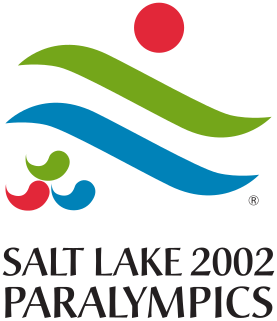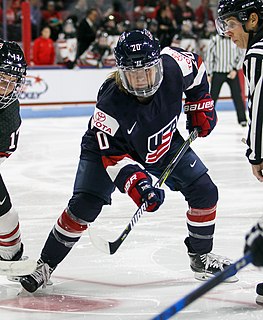
The Winter Olympic Games is a major international multi-sport event held once every four years for sports practiced on snow and ice. The first Winter Olympic Games, the 1924 Winter Olympics, were held in Chamonix, France. The modern Olympic Games were inspired by the ancient Olympic Games, which were held in Olympia, Greece, from the 8th century BC to the 4th century AD. Baron Pierre de Coubertin founded the International Olympic Committee (IOC) in 1894, leading to the first modern Summer Olympic Games in Athens, Greece in 1896. The IOC is the governing body of the Olympic Movement, with the Olympic Charter defining its structure and authority.

The 2002 Winter Olympics, officially the XIX Olympic Winter Games and commonly known as Salt Lake 2002, was an international winter multi-sport event that was held from February 8 to 24, 2002 in and around Salt Lake City, Utah, United States.

The 1948 Winter Olympics, officially known as the V Olympic Winter Games and commonly known as St. Moritz 1948, were a winter multi-sport event held from 30 January to 8 February 1948 in St. Moritz, Grisons, Switzerland. The Games were the first to be celebrated after World War II; it had been twelve years since the last Winter Games in 1936.

The 2006 Winter Olympics, officially the XX Olympic Winter Games and also known as Torino 2006, were a winter multi-sport event held from 10 to 26 February 2006 in Turin, Piedmont, Italy. This marked the second time Italy had hosted the Winter Olympics, the first being in 1956 in Cortina d'Ampezzo; Italy had also hosted the Summer Olympics in 1960 in Rome.

The 1998 Winter Olympics, officially known as the XVIII Olympic Winter Games and commonly known as Nagano 1998, was a winter multi-sport event held from 7 to 22 February 1998, mainly in Nagano, Japan, with some events taking place in the nearby mountain communities of Hakuba, Karuizawa, Nozawa Onsen, and Yamanouchi. The city of Nagano had previously been a candidate to host the 1940 Winter Olympics, as well as the 1972 Winter Olympics, but had been eliminated at the national level by Sapporo on both occasions.

The 1994 Winter Olympics, officially known as the XVII Olympic Winter Games and commonly known as Lillehammer '94, was an international winter multi-sport event held from 12 to 27 February 1994 in and around Lillehammer, Innlandet, Norway. Having lost the bid for the 1992 Winter Olympics to Albertville in France, Lillehammer was awarded the 1994 Winter Games on 15 September 1988, at the 94th IOC Session in Seoul, South Korea. This was the only Winter Olympics to take place two years after the previous edition of the Winter Games, and the first to be held in a different year from the Summer Olympics. This was the second Winter Games hosted in Norway — the first being the 1952 Winter Olympics in Oslo — and the fourth Olympics overall to be held in a Nordic country, after the 1912 Summer Olympics in Stockholm, Sweden, and the 1952 Summer Olympics in Helsinki, Finland. Lillehammer is the northernmost city ever to host the Olympic Games. This was the last of three consecutive Olympics held in Europe, with Albertville and Barcelona in Spain hosting the 1992 Winter and Summer Games, respectively.

The 1952 Winter Olympics, officially known as the VI Olympic Winter Games and commonly known as Oslo 1952, was a winter multi-sport event held from 14 to 25 February 1952 in Oslo, the capital of Norway.

The 2002 Winter Paralympics, the eighth Paralympic Winter Games, were held in Salt Lake City, United States, from March 7 to 16, 2002. A total of 416 athletes from 36 nations participated. They were the first Winter Paralympics in the American continent. These were the first Paralympic Winter Games for Andorra, Chile, China, Croatia, Greece, and Hungary. Ragnhild Myklebust of Norway won five gold medals in skiing and biathlon, becoming the most successful Winter Paralympic athlete of all time with 22 medals, 17 of them gold.

The 1998 Winter Olympics, officially known as the XVIII Olympic Winter Games, was a winter multi-sport event held in Nagano, Japan, from 7 to 22 February 1998. Twenty-four nations earned medals at these Games, and fifteen won at least one gold medal; forty-eight countries left the Olympics without winning a medal. Competitors from Germany earned the highest number of gold medals (12) and the most overall medals (29). With 10 gold medals and 25 overall medals, Norway finished second in both categories. Denmark won its first – and as of 2018 only – Winter Olympics medal, while Bulgaria and the Czech Republic won their first Winter Games gold medals. Azerbaijan, Kenya, Macedonia, Uruguay, and Venezuela competed for the first time, but none of them won a medal.
The 1952 Winter Olympics, officially known as the VI Olympic Winter Games, took place in Oslo, Norway, from 14 to 25 February 1952. A total of 694 athletes representing 30 National Olympic Committees (NOCs) participated in the Games, taking part in 22 events from 6 sports.

Ice hockey tournaments have been staged at the Olympic Games since 1920. The men's tournament was introduced at the 1920 Summer Olympics and was transferred permanently to the Winter Olympic Games program in 1924, in France. The women's tournament was first held at the 1998 Winter Olympics.

Canada competed at the 2006 Winter Olympics in Turin, Italy, with a team of 196 athletes and 220 support staff.

Canada has competed at every Winter Olympic Games, and has won at least one medal each time. By total medals, the country's best performance was in the 2018 Winter Olympic Games where Canadian athletes won 29 medals. Canada set a new record for most gold medals won by a country in a single Winter Olympics with 14 at the 2010 Winter Olympics in Vancouver, Canada. This achievement surpassed the previous record of 13 gold medals held by the Soviet Union (1976) and Norway (2002). Both Germany and Norway matched the record total of 14 gold medals in Pyeongchang in 2018. This record has since been surpassed by Norway with 16 at the 2022 Winter Olympics.

"Hey! Baby" is a song written by Margaret Cobb and Bruce Channel, and recorded by Channel in 1961, first released on LeCam Records, a local Fort Worth, Texas label. After it hit, it was released on Smash Records for national distribution. Channel co-produced the song with Major Bill Smith and released it on Mercury Records' Smash label. It reached number 1 on the Billboard Hot 100 for three weeks, starting the week ending March 10, 1962.
Julian Austin is a Canadian country music singer. He has released more than fifteen singles in Canada, including the Number One hit "Little Ol' Kisses" (1997). In addition, Austin has recorded five studio albums.

Canada has sent athletes to every Winter Olympic Games and almost every Summer Olympic Games since its debut at the 1900 games with the exception of the 1980 Summer Olympics, which it boycotted. Canada has won at least one medal at every Olympics in which it has competed. The Canadian Olympic Committee (COC) is the National Olympic Committee for Canada.
Canadian country music singer Paul Brandt has released five studio albums, two holiday albums, three extended plays, and 42 singles. Brandt debuted in 1996 with the single "My Heart Has a History", the first of five consecutive number ones in his native Canada. Both this and his next single, "I Do", made top 10 on the U.S. country charts. Although he charted only three more top 40 hits in the United States, he has continued to chart in Canada, including the number one all-genre hit "Canadian Man" in 2001 and the Gold-certified "I'm an Open Road" in 2015.

Canada hosted and participated in the 2010 Winter Olympics in Vancouver, British Columbia. Canada previously hosted the 1976 Summer Olympics in Montreal and the 1988 Winter Olympics in Calgary. Canada sent a team of 206 athletes, including participants in all 15 sports, and finished with 14 gold medals and 26 in total, surpassing their previous best medal performance at the 2006 Winter Olympics. The 14 gold medals also set the all-time record for most gold medals at a single Winter Olympics, one more than the previous record of 13 set by the former Soviet Union in 1976 and Norway in 2002. This record was matched at the 2018 PyeongChang Games when Germany and Norway tied it, and broken at the 2022 Beijing Games by Norway. Canada was the first host nation to win the gold medal count at a Winter Olympics since Norway at the 1952 Winter Olympics.

Paul Rennée Belobersycky is a Canadian country music artist, known professionally as Paul Brandt. Growing up in Calgary, he was a pediatric RN at the time of his big break. In 1996, he made his mark on the country music charts with the single "My Heart Has a History," propelling him to international success and making him the first male Canadian country singer to reach the Top 10 on the Billboard Hot Country Songs chart in the United States since Hank Snow in 1974.

Hannah Brandt is an American ice hockey centre, currently playing for the Minnesota section of the PWHPA. She was named to the United States women's national ice hockey team which represented the United States at the 2012 IIHF Women's World Championship. She was the winner of the 2012 Minnesota Ms. Hockey Award. She debuted for the US national women's team at the 2014 4 Nations Cup in Kamloops, British Columbia, Canada.














